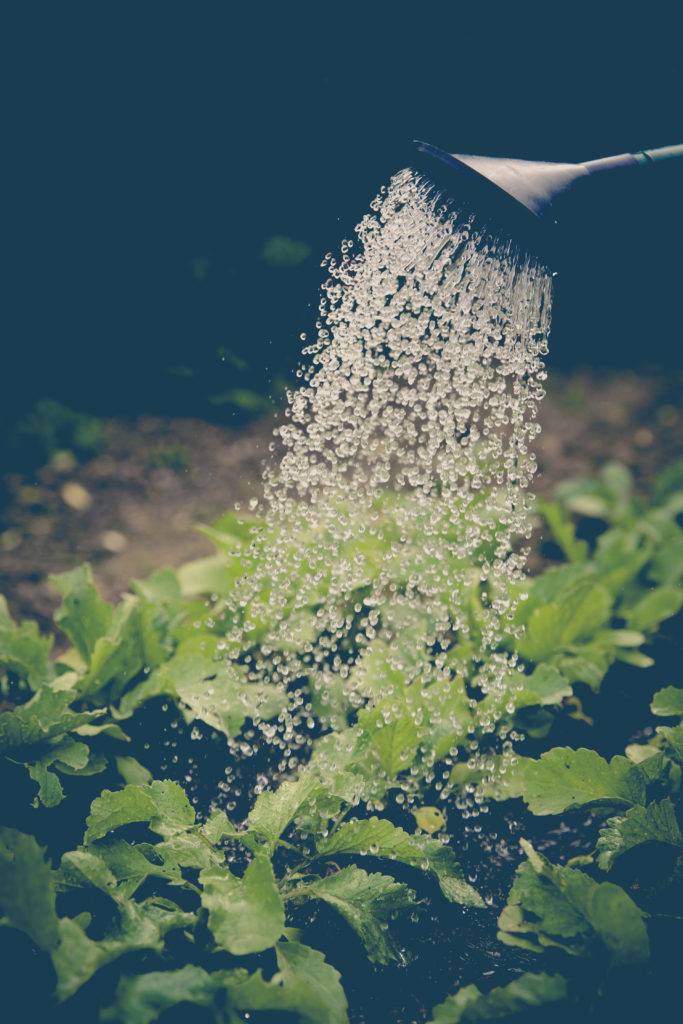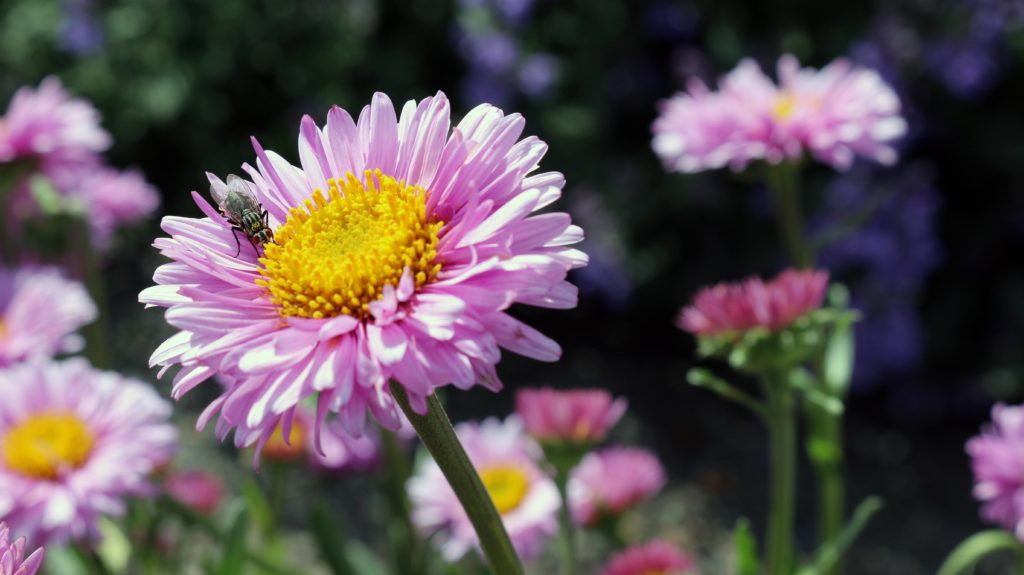By Sister Janis Yaekel, ASC
I have often looked at myself as a jack of all trades but probably a master of none. I have been a teacher, a preacher, a spiritual director and ecologist and I have enjoyed all these ministries. But there is one that has really grounded me, literally, and that is gardening.
For eight years, I worked on a three-acre garden helping to provide produce for some 80 families. More recently, I have worked in the garden at the Adorers’ Ruma Center. Here we grow vegetables for our own kitchen. We’re heavy into the work of gardening right now with most of the crops planted and lettuces, spinach, radishes and green onions being harvested right now.
 Here are some tips for grace-filled gardening that takes place on the land and in the heart.
Here are some tips for grace-filled gardening that takes place on the land and in the heart.
- Know the piece of earth that you are going to plant. Is it rich soil or poor, is it sandy, clay, or fertile black soil? Does the area have good drainage and what kinds of plants can be sustained on this land? Here at Ruma, we have clay soil but we are able to grow most vegetables and fruits but certain crops like watermelon never seem to do very well here. Watermelon likes sandy soil better than clay.
As we look at our spiritual landscape, we might ask ourselves what our soul soil is like. Is it fertile or like a desert terrain? Is it growing wild or have we cultivated it with good prayer practices? Are we receptive to the graces that God sends to fertilize our soul soil? Knowing oneself, both strengths and weaknesses, is important for growth in the spiritual life. When we do not honestly look at our inner earth, we run the risk of growing more weeds than wheat.
- Grow produce for yourself and for your neighbor. When I plant a garden, I first select plants that I like. I don’t plant turnips because I don’t eat them. On the other hand, lettuce, tomatoes, onions, zucchini and green beans are high on my list of must-plant veggies. When I have those things growing in my garden, I don’t mind weeding and hoeing because I know that I am giving my favorites the best advantage for maximum healthy growth. I always try to plant enough so that I have extra to share and if I know that people like a particular vegetable that I don’t much care for like squash and sweet potatoes and even turnips, I’m willing to plant them as well. Half the fun of gardening is sharing the bounty with others.
In our personal soul garden, we need to plant that which makes us happy and energizes us. Why be something that you don’t want to be? Happiness is found by planting in your life friends and family that love you, challenge you and encourage you to grow deeply into the soil of the sacred. Plant a path in your life that will bring you joy. Follow the longing of your heart. Don’t be something just because others think you should be a certain type of person. Be your best self even if that means following a different drummer into a career or lifestyle that makes no sense to family and friends. When I chose the lifestyle of a religious sister, my mother was not happy. It was not what she wanted but she continued to pray about it and eventually was at peace with my decision. I think that she saw that I was happy and because she loved me, my happiness was the most important thing to her.

- Plant rows of flowers among your vegetables. Gardens shouldn’t simply be about the practical production of food. Gardens should also be about growing the impractical beauty of flowers. Flowers are grown to make the heart smile. They sing a tune that for the most part nourishes the creative side of the human and often leads us to give praise to the Creator. When we entertain beauty, we entertain God. Some flowering plants such as marigolds can help deter the critters from nibbling on the veggies.
In our personal lives, what do we do or create just for its own sake? Where do we find beauty simply for the sake of enjoying it? In our daily lives, we are working to produce something that will be practically beneficial to ourselves and our neighbors, but what do I do that simply brings me joy? Our inner being needs to be fed by beauty and it can come in many different forms. Perhaps it is a flower garden or watching a flock of wild geese as they wing their way north in the spring. Maybe it is a piece of music that causes the heart to soar or simply time spent with a friend. Always plant beauty in your soul!
- Know the difference between a plant and a weed, so that when one or both sprout, you won’t pull up the wrong plant. What is a weed after all except a plant that is growing where we don’t want it to grow. And remember one person’s weed is another person’s flower or vegetable. The dandelion, for example, is a weed to many, a pretty flower to some, and a plant to be eaten by others. Tending a vegetable garden means keeping weeds at a minimum. The weed can take the water and nutrients that the vegetable needs, so it’s better to pull it up by the roots. Having to pull weeds never ends during the growing season and it is probably the least-liked thing that a gardener has to do.
There are spiritual weeds as well, things that keep God at a distance and that drain us of hope. They may seem beneficial or beautiful at first, but when they become more important than our love relationship with God, they have become weeds that must be removed if growth is to take place in our lives. Vices that constrict our growth are weeds in our spiritual garden. They may not have started out as dangerous, but when these weeds take control of the soul , it is awfully hard to uproot them. We are called to be vigilant and pull these weeds when they are small and manageable. They can get the best of us if we ignore them for too long.
- Tend the garden before winter. Obviously, one does not plant vegetables in the winter and expect them to grow, but it is important to prepare for winter’s harsh cold. At the end of the regular growing season, we might think about planting crops that will provide a blanket for the ground. Perhaps we plant an annual rye grass or buck weed, crops that die out in the winter but cover the soil. In the spring, they are plowed under and add organic matter to the soil. Apply manure or compost in an area of the garden that will be planted first in the spring, giving it enough time to soak into the soil and cool down by spring. Good gardening practices in the winter invite the new life of spring.
We experience winter in our lives as well. These are the hard times of life, the suffering and grieving times when life seems cold and barren. These are the times when God seems far away from us and the bitterness of each day seems to freeze our hearts. We prepare for these days by learning to live with open hands, by allowing God to control our lives. We protect ourselves by covering with a blanket of faith in a loving God. We use the compost that life sometimes throws at us to enrich our future growth. As we move through each hard time in our life, we come to know that spring will follow, that life will be renewed and that all shall once again be well.